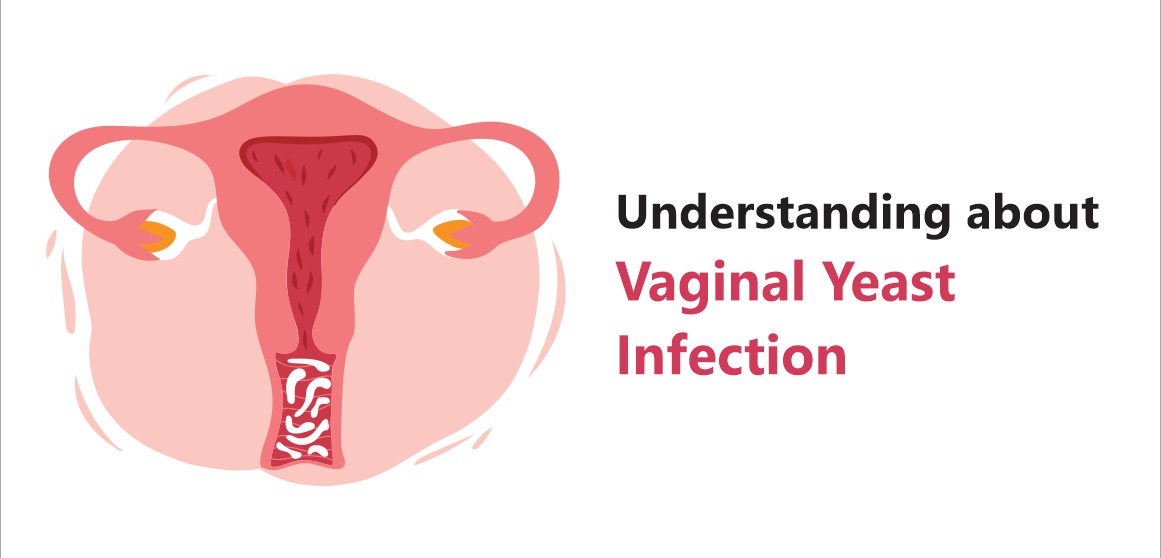

Yeast Infections:
What causes them anyway? Aren't they a normal occurrence? So many intimate questions, but we read your mind! Read on about yeast infections and ways to handle them.
Yeast infection of the vaginal area is also called vulvovaginal candidiasis. It occurs when the normal amount of healthy yeast in the vagina becomes overgrown. Itching and other bothersome symptoms are common side effects of this medication. Candida, a particular strain of yeast, is the most common culprit in yeast infections, and the medical term for it is "candidiasis." Consult a obstetrics if you want to know more, through Assurance.
What causes a vaginal yeast infection?
It's possible for the normal yeast living in your vagina to grow excessively if the vaginal chemistry is off balance. Change in your vaginal environment & yeast infections can be caused by a variety of factors, including:
- Hormonal fluctuations are to be expected (like during your menstrual cycle)
- Drugs such as cortisone and antibiotics
- Pregnancy
- Diabetes
- A weakened resistance to infection
- A normal response to the genital chemistry of another individual
Vaginal yeast infections aren't a sexually transmitted disease (STI). They can't transmit to another person while having sex because they're not contagious. However, sexual contact can result in a yeast infection if your body chemistry reacts poorly to the other person's natural genital bacteria and yeast, allowing the yeast to flourish.
Thrush, a yeast infection of the mouth, throat, or tongue, can also occur in people who have yeast infections elsewhere in their bodies. Consult a gynaecologist with Assurance today to get screened.
In what ways can you tell if you've got a yeast infection?
Thick, white, clumpy vaginal discharge caused by yeast infections usually has no odour (or only smells slightly different than normal). Your vaginal area may also appear to be coated in a creamy white substance.
Itchiness, burning, and redness are common symptoms of vaginal yeast infections. The more time you have the infection, the worse the vaginal itching usually becomes. It's possible that sex will make you uncomfortable or even hurt. Fissures or sores on the vagina or vulva are possible in severe cases. In cases of severe irritation, the urge to pee may cause pain and even stinging.
What's the best way to deal with a yeast infection?
In most cases, anti-fungal medication will effectively treat a yeast infection within a few days. Without a prescription, you can purchase over-the-counter anti-yeast creams and suppositories at a drugstore, such as Monistat.
Even if your symptoms disappear before you finish the medicine, following the instructions and using the entire dose is essential. Yeast infections can be treated with a single pill (called Diflucan or Fluconazole). The yeast infection pill can only be obtained with a doctor's prescription. Consult a doctor through Assurance to get an online prescription and also a medicine delivery service.
Put a stop to all sexual activity, including vaginal and oral, until you've finished treatment, and the infection has cleared up. During sex, friction can irritate the area even further or make healing more difficult.
Try never to scratch if you have a vaginal yeast infection, even if it is extremely itchy. Irritation can be exacerbated, and cuts in the skin can spread germs and infection of new areas. You can calm the irritation on your vulva with over-the-counter creams. In addition, your physician may be able to provide you with advice on how to manage your burning and itching.
As soon as you have finished your treatment, check with your doctor or nurse to see if your symptoms have persisted for longer than a week. It's possible that you need more treatment or that the irritation is caused by something else. There's no need to put off scheduling an appointment because you can always.
Take a few minutes and fill out the comprehensive health assessment screening form curated Assurance that is AI-enabled and which can evaluate your health risks.
How can Assurance help me?
Assurance by NanoHealth provides Disease Management Programs, including PCOD care, infertility, Heart care, etc.
Why us? Our AI-driven initiative helps timely identification, diagnosis, and treatment by pairing you with the proper care providers.
Our disease care management programs include:
- Regular interactions with your health coach for treatment adherence.
- Periodic doctor consultations to ensure effective treatment.
- Routine blood tests to track the progress and improvements.
Book an appointment with fertility specialists from anywhere & anytime today to get a carefully assessed and curated meal plan to headstart your healthy journey. Head over to our website nhassurance.com and consult a specialist today!